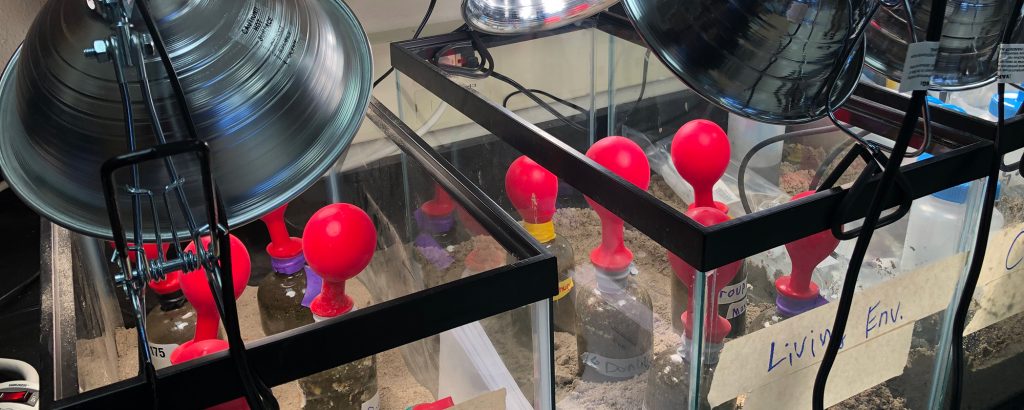Students learn about food waste issues, resource recovery, and other aspects related to our food system through a variety of hands-on educational activities. We have developed and taught a number of educational activities that are appropriate for formal classroom lessons as well as extracurricular group activities. These activities are particularly relevant for students who are simultaneously participating in the food waste separation program, although they can be valuable for any educator wishing to teach students about waste issues and the energy recovery potential of food waste through anaerobic digestion. Most activities can be adapted for middle or high school students, and some are also appropriate for upper-level elementary grades. The activities can be used as stand-alone lessons or can be combined to form a food waste module. CLICK HERE to visit our educational materials, which are described in more detail below.
Digester Experiments
High School Chemistry, Earth Science, Environmental Science, and Living Environment.
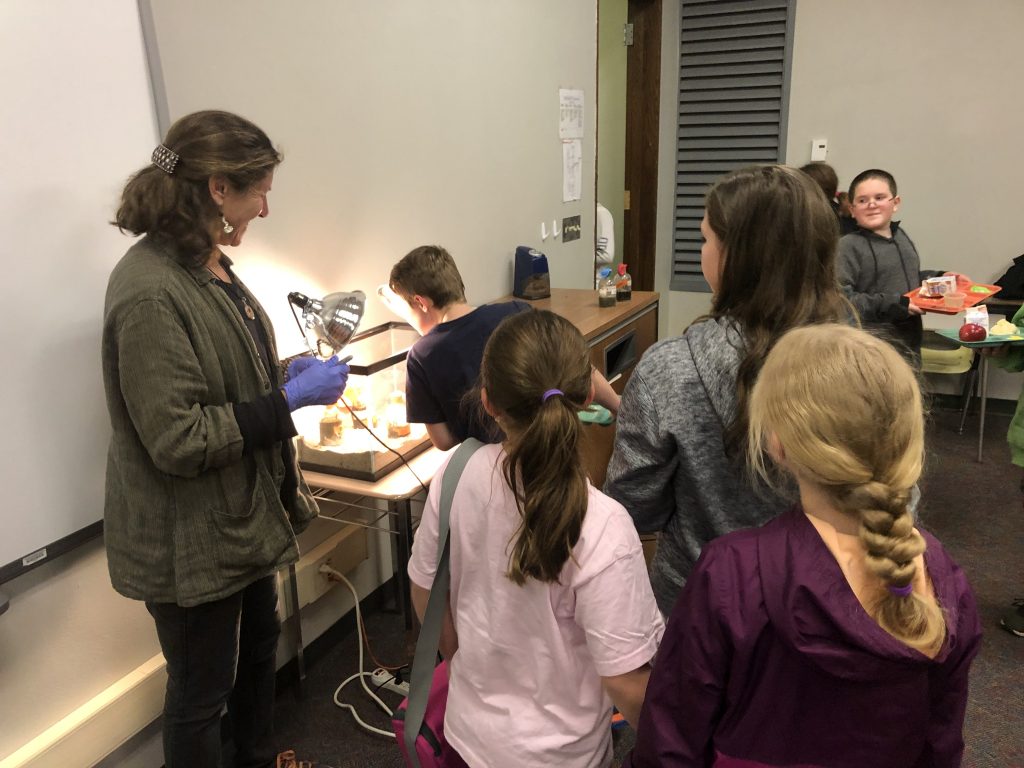
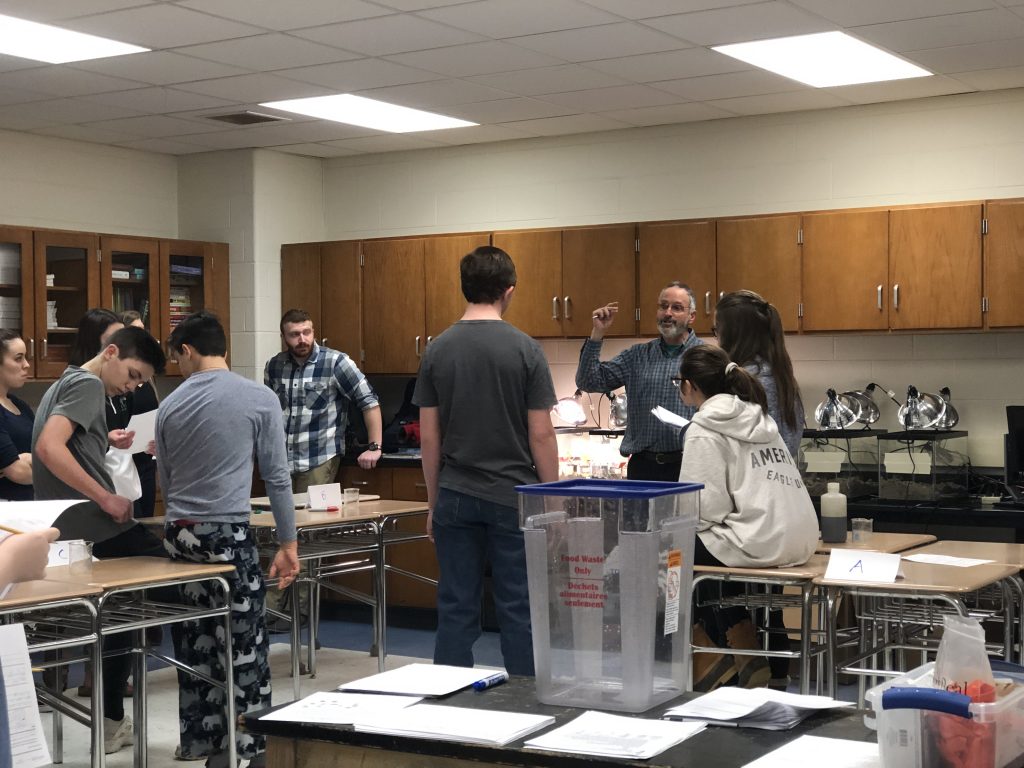
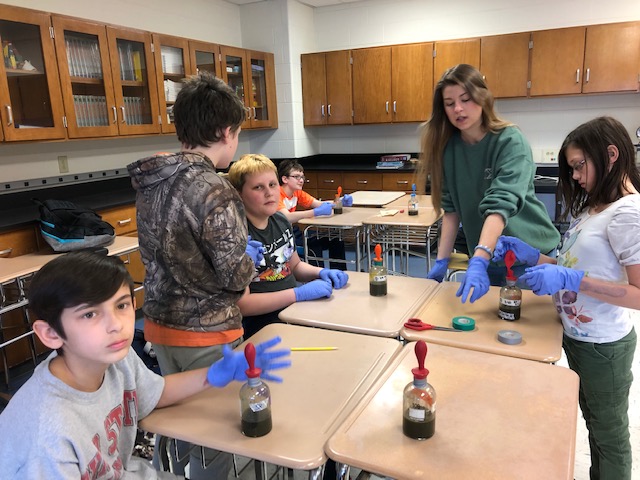
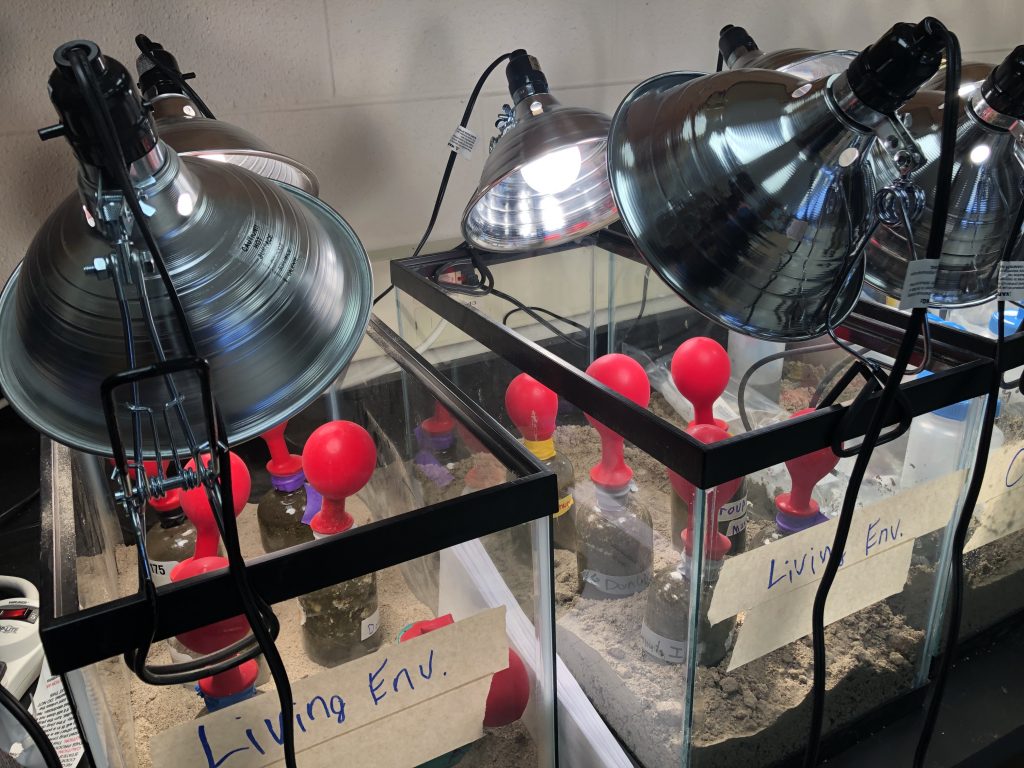
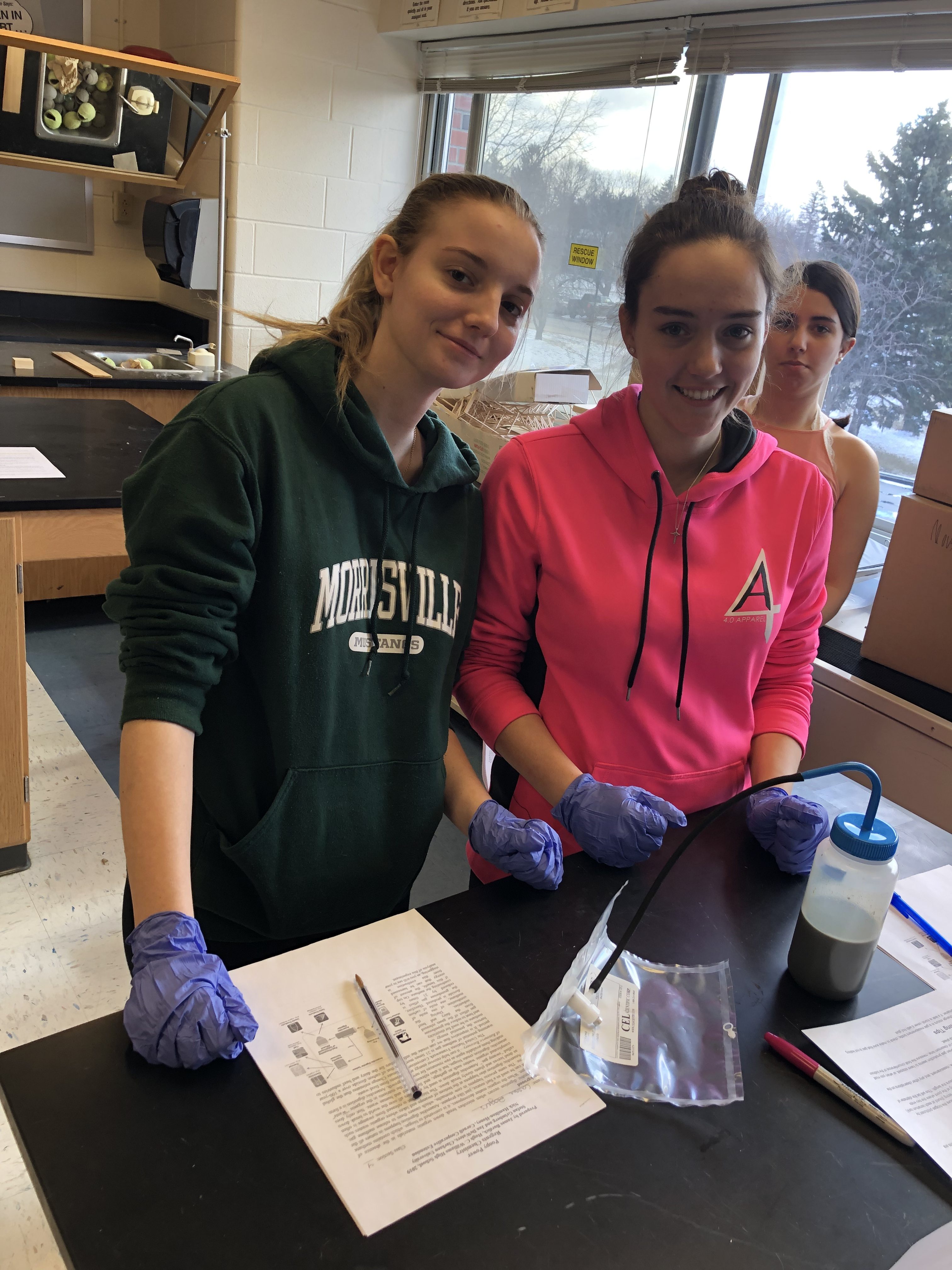
A week-long anaerobic digestion experiment is used to reach a variety of learning outcomes, depending on the focus of the class. After an introduction to general issues related to food waste disposal, and waste disposal in general, students set up small bottle-sized anaerobic digester reactors and monitor gas production over several days (~1 week). Chemistry students analyze stoichiometry of the digestion reaction using different foods; environmental science students connect the outcomes to various impacts of food waste disposal and methane production on our natural environment; younger students use data to develop analysis and graphing skills. The experiment has been used together with other food waste activities created by our project, for a complete food-waste unit, and in other situations students have set up the experiment and monitored progress while they move on to other topics, coming back for a final day of data collection and analysis. CLICK HERE for a link to materials
Food Waste Activities
Middle School Green Team.
In addition to experimenting with small portions of the digester experiments, a variety of games have been developed to teach students about food waste in a fun setting. The games have been used during regular visits with after-school programs, and have also been adapted for online applications and used during the Covid-19 pandemic. CLICK HERE for a link to these materials.
Mathematical Modeling of Food Waste Disposal Options
appropriate for upper level middle school or high school students.
A multi-day project-based lesson uses the theme of ‘food waste disposal options’ to teach students about mathematical models. Students explore a variety of waste disposal options, and use real-world data to investigate and analyze the financial implications of a range of disposal decisions. For our project in particular, the findings can be used to show the overall value of keeping food waste out of the regular waste disposal stream and instead sending it to an anaerobic digester. CLICK HERE for a link to these materials.
Additional Related Science Experiments
appropriate for upper level middle school or high school students.
Two additional experiments were developed by our students but have not yet been taught in the classroom. These focus on issues related to water and waste issues, including (1) solar desalination for creating a clean drinking water supply, and (2) cleaning organics from water using flocculation and sedimentation processes. CLICK HERE for a link to these materials.
